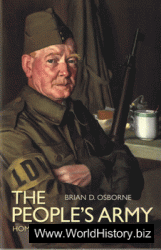World War I shattered the image of a liberal, rational society
in early-twentieth-century Europe. The incredible
destruction and the deaths of millions of people undermined
the whole idea of progress. New propaganda techniques
had manipulated entire populations into sustaining
their involvement in a meaningless slaughter.
Who was responsible for the carnage? To the victorious
Allied leaders, it was their defeated former adversaries,
on whom they imposed harsh terms at the Versailles
Peace Conference at the end of the war. In later
years, however, some historians placed the blame on Russia
for its decision to order full military mobilization in
response to events taking place in the Balkans. More recently,
the historian Niall Ferguson has pointed an accusing
finger at the British government for its failure to send
clear signals as to its own intentions and to what he regards
as its overestimation of the consequences of a German
victory on the European continent.
Perhaps, however, the real culprit was the system itself.
In the first half of the nineteenth century, liberals had
maintained that the organization of European states
along national lines would lead to a peaceful Europe based
on a sense of international fraternity. They had been very
wrong. The system of nation-states that emerged in Europe
in the second half of the nineteenth century led not
to cooperation but to competition. Governments that exercised
restraint to avoid war wound up being publicly humiliated;
those that went to the brink of war to maintain
their national interests were often praised for having preserved
national honor. As the British historian John Keegan
has noted, for European statesmen in the early twentieth
century, “the fear of not meeting a challenge was
greater than the fear of war.” In either case, by 1914, the
major European states had come to believe that their allies
were important and that their security depended on
supporting those allies, even when they took foolish risks.
The growth of nationalism in the nineteenth century
had yet another serious consequence. Not all ethnic
groups had achieved the goal of nationhood. Slavic
minorities in the Balkans and the polyglot Austro-
Hungarian Empire, for example, still dreamed of creating
their own national states. So did the Irish in the British
Empire and the Poles in the Russian Empire, not to speak
of the subject peoples living in colonial areas elsewhere
around the globe. To a close observer of the global scene,
the future must have looked ominous.
A mounting sense of insecurity led to increased military
expenditures. European military machines had doubled
in size between 1890 and 1914. With its 1.3 million
men, the Russian army had grown to be the largest, but
the French and Germans were not far behind with
900,000 each. The British, Italian, and Austrian armies
numbered between 250,000 and 500,000 soldiers.
To make matters worse, the very industrial and technological
innovations that brought the prospect of increased
material prosperity for millions also led to the
manufacture of new weapons of mass destruction such as
long-range artillery, the tank, poison gas, and the airplane
that would make war a more terrible prospect for those involved,
whether military or civilian. If war did come, it
would be highly destructive.
Victorious world leaders gathering at Versailles hoped
to forge a peace settlement that would say good-bye to all
that. But as it turned out, the turmoil wrought by World
War I seemed to open the door to even greater insecurity.
Revolutions in Russia and the Middle East dismembered
old empires and created new states that gave rise to unexpected
problems. Expectations that Europe and the
world would return to normalcy were soon dashed by the
failure to achieve a lasting peace, economic collapse, and
the rise of authoritarian governments that not only restricted
individual freedoms but sought even greater control
over the lives of their subjects, manipulating and
guiding their people to achieve the goals of their totalitarian
regimes.
Finally, World War I brought an end to the age of
European hegemony over world affairs. By virtually demolishing
their own civilization on the battlegrounds of
Europe in World War I, Europeans inadvertently encouraged
the subject peoples of their vast colonial empires to
initiate movements for national independence. In the
next chapter, we examine some of those movements.




 World History
World History









